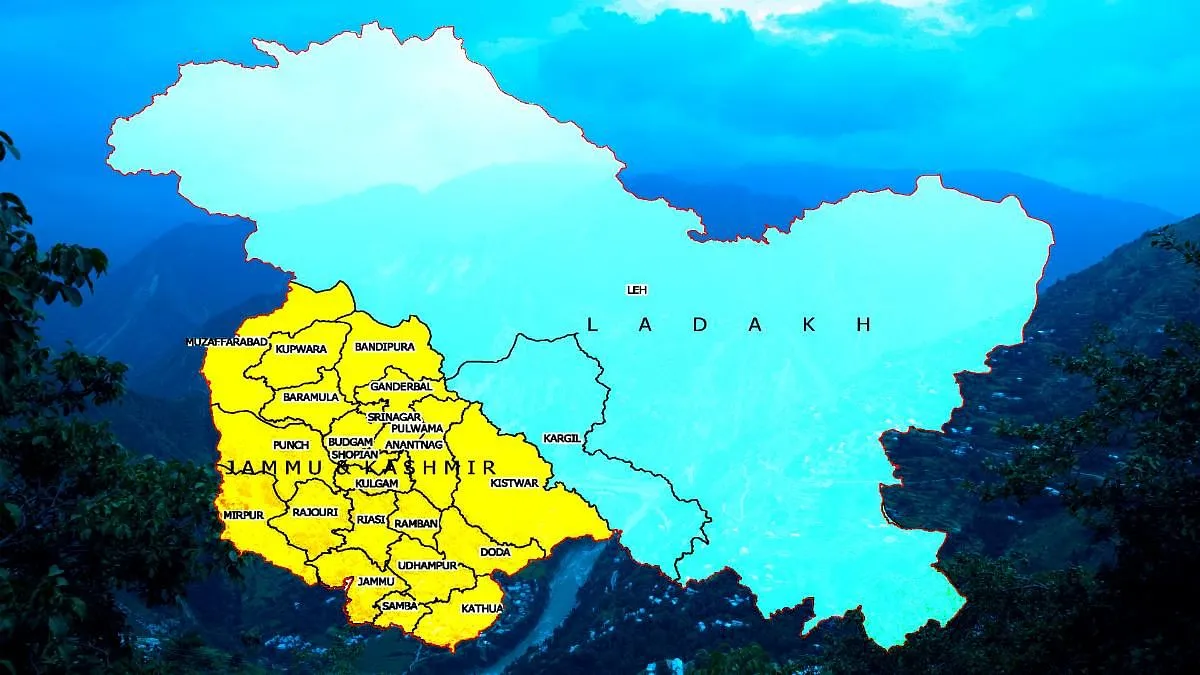Truth needs to be told. The need for truth is real. Jammu and Kashmir has, at least, two realities. One, which the people live in. The other what they have seen, experienced, and hope that they will get it back in future. Only a less than one-year old infant is oblivious to the history, and political powers of the that the state of Jammu and Kashmir had, before August 5 last year. A post script was handed out to J&K. Nevertheless, there was an unequivocal promise by Home Minister Amit Shah to restore statehood to J&K once the conditions were normal.
He was crisp and clear. J&K had been stripped of its special status granted to it under Article 370, the constitutional provision that entitled the state to have its flag, constitution and the legislature that could frame its own laws, while another constitutional provision granted exclusive rights to the permanent residents of J&K to own the land, compete for the state government jobs and avail all the benefits. Amit Shah piloted the bill and it was passed by an overwhelming majority in the Parliament, the supreme, democratically elected, institution in the country.
J&K legislature’s approval was needed, but there was no legislature in the state at that time. A little recall of the history would tell why the legislature was not there. The BJP that had aligned with the PDP to form the government in 2015, withdrew the support in June 2018. The then Chief Minister Mehbooba Mufti who had the powers to recommend the dissolution of the Assembly and seek fresh elections within six months’ time did not do that. That was a mistake, but there is a counter argument that even if she had done that, would Delhi have allowed her to do that. The answer is obvious. But Mehbooba cannot absolve herself of this misstep. Perhaps, she was scared of facing the electorate who were aggressively angry with her for her alliance with the saffron party against which she had launched a fierce campaign in 2014 polls.
That she did not explore another option of looking for an alternative group of partners as National Conference and Congress had offered their support to PDP in the past, before the formation of the PDP-BJP government in early 2015 to stall the entry of the saffron party in the J&K government. Once having refused the offer of NC and Congress when the party was riding high and in negotiations with the BJP, she could not have changed the course. That was a moral politics. In any case, by that time, the mood in the NC and Congress had changed and Mehbooba was increasingly unsure of her party MLAs staying together in her support. She, in fact, had been anticipating this move by Delhi for quite some time. She had seen straws in the wind with BJP leaders having started the process of encouraging and enticing her party leaders to defect.
Delhi wields its own influence through multiple sources in Kashmir. Who would have known it better than Mehbooba, whose father Mufti Mohammad Sayeed was Home Minister of the country, and who had been close confidant of Indira Gandhi for decades together? She had seen it all in her home, and also when she was able to make Delhi to accept first round of Chief Ministership for Mufti Sayeed after the 2002 elections. And the National Conference despite having 28 seats and support of at least a dozen MLAs was told to stay back. PDP with 16 seats headed the government.
J&K is now a Union Territory. Nothing more, nothing less. It sits in the category of the UTs that dot the map of the country. Delhi, Chandigarh, Dadar-Nagar-Haveli, Puducherry, Lakshadweep etc. Its status is what it is there at the moment in the constitution after the Reorganisation Act of J&K.
There is a simmering discontent in J&K because never before in the history of the Independent India any state was turned into a Union Territory. The states of Uttar Pradesh, Madhya Pradesh, Bihar, Punjab and others were split, and all of them were granted status of a state.
Another stark reality is that J&K UT is living in the hope of getting its statehood back. It is the unqualified pledge of all-powerful Delhi. Now, the UT’s purpose has been achieved- the natives are being given a domicile certificate as much in letter and spirit as others from the rest of the country. They can buy land, properties, set industrial units and invest as much as they want. Therefore, it is time for Amit Shah to deliver on his promise – to restore statehood to J&K






